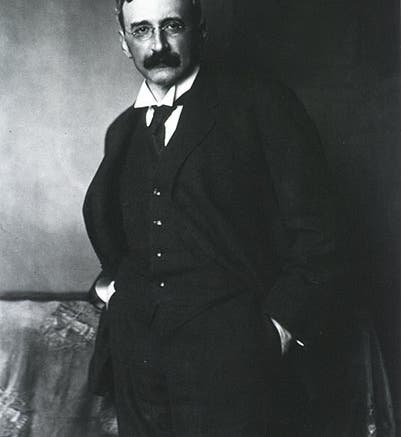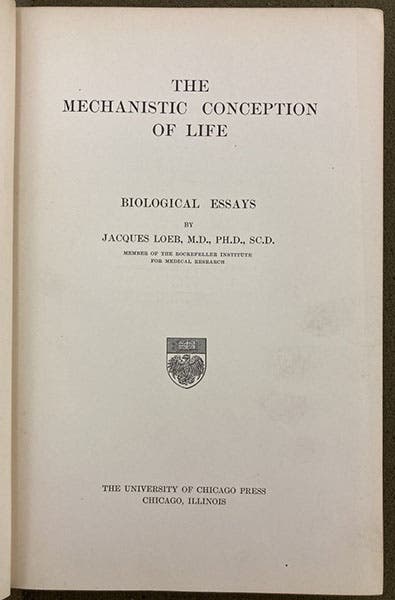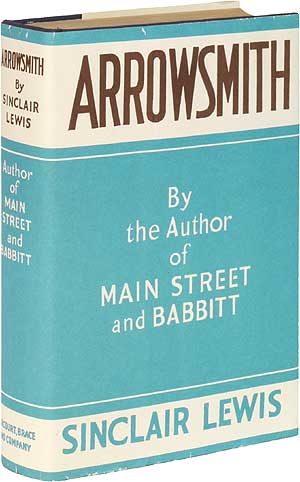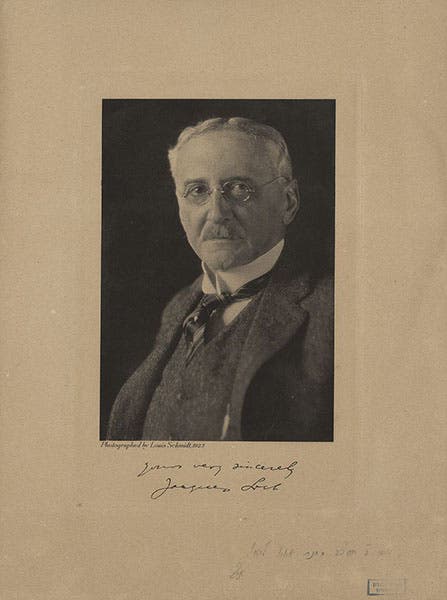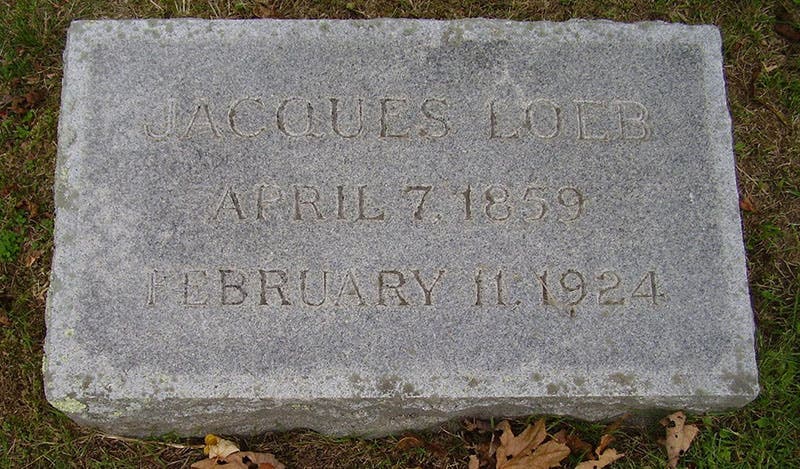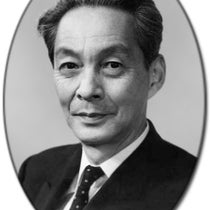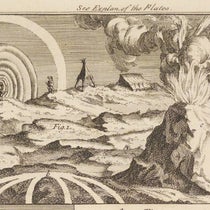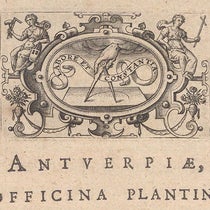Scientist of the Day - Jacques Loeb
Jacques Loeb, a German/American physiologist and medical research scientist, was born Apr. 7, 1859. Loeb was educated at various German universities and did not come to the United States until 1891, when he was invited to join the faculty at Bryn Mawr. He moved on to the University of Chicago, then the University of California, and finally came to roost at the Rockefeller Institute in New York City, where he spent the last 14 years of his career.
Loeb was interested in how life works, believing that even the most mysterious living processes can be explained with diligent experimental inquiry and without recourse to vital forces. The title of his best-known book, The Mechanistic Conception of Life (1912) epitomizes this belief. We have this book, a compilation of previously published essays intended for the general public, in our rare book collection. In one of the essays, called "On the nature of formative stimulation (artificial parthenogenesis)," Loeb discussed one of his most important discoveries. Normally, sea urchins reproduce sexually, with the male spermatozoa fertilizing the egg. Loeb found that by adding certain chemicals to sea-water, eggs in that sea-water proceed to develop without being fertilized. (Some organisms can reproduce asexually on their own; this is called parthenogenesis. The sea urchin egg can be chemically prodded to do so, hence the term "artificial parthenogenesis", a feature of reproduction that Loeb was the first to detect).
Loeb was also the model for a character in Sinclair Lewis' Arrowsmith, published in 1925. In writing this novel about Martin Arrowsmith, a medical researcher who loses his way, Lewis wanted to get the medical aspects right, so he collaborated with Paul de Kruif, a microbiologist whom he met who worked at the Rockefeller Institute. De Kruif had the notion that American medicine had been corrupted and that present-day doctors were mere money-grubbers (in fact, he was fired from Rockefeller for publishing essays on that theme), and that we need a return to the ideals of seekers after truth like Louis Pasteur and William Osler. And Jacques Loeb. De Kruif very much admired the ethical standards and medical philosophy of Loeb, with whom he worked at Rockefeller. With De Kruif’s help, Lewis fashioned the character of Max Gottlieb, Arrowsmith's mentor. Throughout the novel, Arrowsmith's moral standards slowly erode away, and he lands a cushy job at a fictional Rockefeller, but in the end, Arrowsmith decides to return to the ideals of Gottlieb (Loeb), giving up his material comforts to do pure research in the back hills of Vermont.
Arrowsmith was a national best-seller, and so was De Kruif's own book The Microbe Hunters (1926), and between the two, Jacques Loeb became a nationally known exemplar of medical ethics. Unfortunately, it was posthumous fame, as Loeb died in 1924, of unknown causes; he was 64 years old. He is buried in Woods Hole Village Cemetery in Woods Hole, Mass, where Loeb worked for many summers at the Marine Biological Laboratory there (fifth image).
Dr. William B. Ashworth, Jr., Consultant for the History of Science, Linda Hall Library and Associate Professor emeritus, Department of History, University of Missouri-Kansas City. Comments or corrections are welcome; please direct to ashworthw@umkc.edu.

